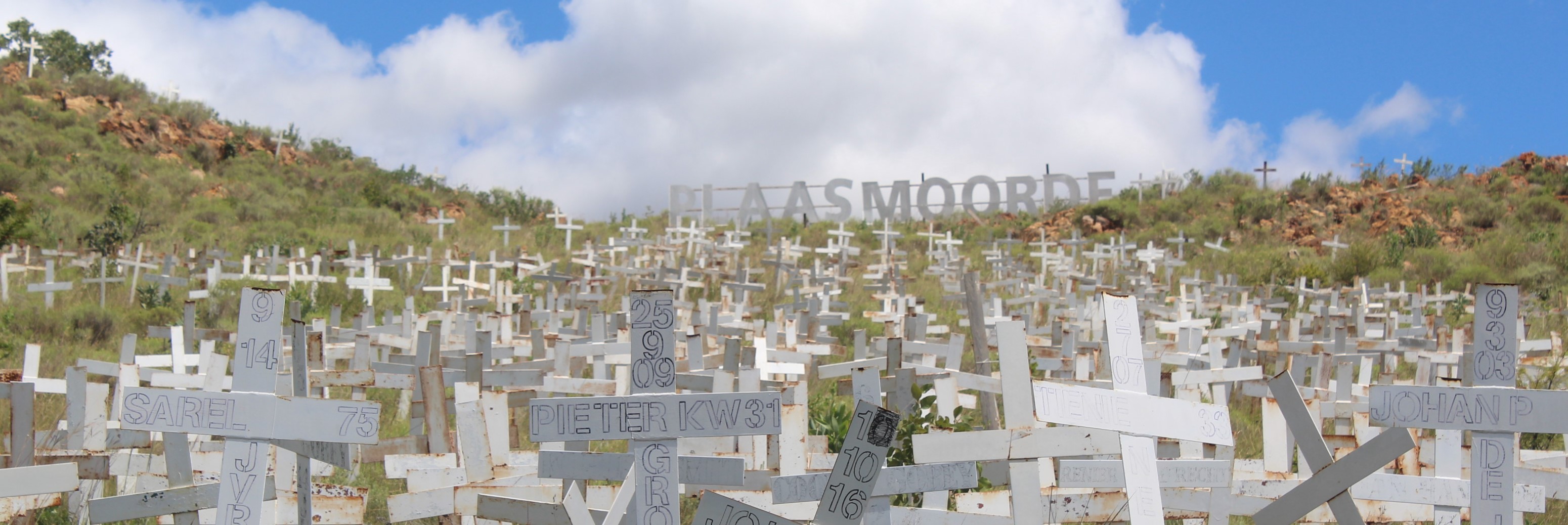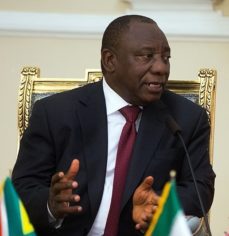South African president Zuma resigns after party turns on him
South African president Jacob Zuma resigned on Wednesday after his party, the African National Congress (ANC) forced him to leave.
Published: February 15, 2018, 7:52 am
His party had given Zuma a deadline of midnight on Wednesday. After he failed to resign during the day, the ANC announced that it would back a motion tabled by the opposition to force him from office.
The move by the ANC cadres was explained by their fear that by not following globalist orders to get rid of Zuma, they may be losing their lucrative jobs.
“I have been compelled to resign as a result of a vote of no-confidence set down by the ANC,” Zuma said in his resignation speech. “Even though I disagree with the decision of the leadership of my organization, I have always been a disciplined member of the ANC.”
Zuma angrily pointed out that the party had presented no evidence of wrongdoing, nor followed the proper constitutional procedure in forcing his resignation.
The hallmark of ANC politics throughout its 106-year history has been interference by old colonial powers in South Africa. Cyril Ramaphosa’s long and eventful career has taken him from the National Union of Mineworkers (NUM) trade union activist to multi-millionaire, since he enjoys the support of globalists.
One of the most tainted political figures after the Marikana massacre, Ramaphosa, is now likely to become president of South Africa. The massacre, which took place on 16 August 2012, was the single most lethal use of force by a government against civilians.
The shooting took place at a mine owned by Lonmin in the Marikana area in which the NUM sided with Lonmin security and law enforcement to drive the opposition union out. Ramaphosa, who was a Lonmin shareholder at the time, had called for concomitant action and in total, 44 people were killed, all gunned down.
Ramaphosa has remained at the centre of the Marikana killings with many community members blaming him for the bloodshed five years ago after it was revealed that he had sent an email in 2012 calling for firm action against the other trade union Amcu.
During his business career, Ramaphosa held stakes in McDonald’s and Coca-Cola’s local ventures. The former trade-unionist made millions in deals that required investors to partner with non-white shareholders as a result of new racist laws that had been voted in by the ANC.
He became one of the richest men on the continent — reaching number 42 on the Forbes list of Africa’s wealthiest people in 2015 with a net worth of $450 million.
When he became deputy president in 2014, and served under Zuma, he was essentially tarred by the same accusations of corruption and incompetence as his political master. Mmusi Maimane, leader of the main opposition Democratic Alliance party, accused Ramaphosa of being “at best a silent deputy president, and at worst a complicit one”.
The Zuma-resignation will be the end of the media-induced euphoria of the Zuma exit. The rand may gain a few cents more, and the bond market may improve by a few points, but the budget is going to reveal the reality of South Africa’s ANC kleptocrats, composed of black oligarchs and their cynical white, globalist handlers.
The country’s budget will be a shock, because it is inevitable says economist Dawie Roodt. “The state-owned enterprises (SOE) are financially and functionally demolished. The other ills are also still with us: unemployment, a dysfunctional education system, the local authorities, South African Social Security Agency (SASSA), Passenger Rail Agency of South Africa (Prasa)…
“I am afraid that once the joy of the end of Zuma inevitably recedes, the distressing reality of an abused economy will again loom large,” Roodt said.
Some 12 million people in South Africa live in absolute poverty, which is over 20 percent of the population. The ANC have managed to create a stagnating economy, which barely registered any growth in 2017 and forecasts for 2018 are at best around 1 percent. The working age population register almost 28 percent unemployed, according to official figures. The unofficial figures are much higher.
More recently, in January this year, Ramaphosa called for an “agricultural revolution” arguing that there was no need for compensating white farmers – already suffering from the highest murder rate in the world – for their land.
He said land grabs would somehow not lead to a similar Zimbabwe disaster: “In fact, we can make this country the garden of Eden.” But Ramaphosa could not explain how his proposals would avoid the implosion of agriculture and food security as happened in Zimbabwe.
In persuing his radical “economic transformation” agenda, an announcement was published in the Government Gazette adjusting the codes for black empowerment, requiring a quarter of farms to be owned by black people whose produce should be sold to government.
The ANC resolved amending the constitution to allow for land expropriation without compensation, as part of the at its elective conference last year.
Transvaal Agricultural Union manager Bennie van Zyl slammed the land grab proposals: “This will bankrupt farmers. We are sitting on a time bomb.”
All rights reserved. You have permission to quote freely from the articles provided that the source (www.freewestmedia.com) is given. Photos may not be used without our consent.
Consider donating to support our work
Help us to produce more articles like this. FreeWestMedia is depending on donations from our readers to keep going. With your help, we expose the mainstream fake news agenda.
Keep your language polite. Readers from many different countries visit and contribute to Free West Media and we must therefore obey the rules in, for example, Germany. Illegal content will be deleted.
If you have been approved to post comments without preview from FWM, you are responsible for violations of any law. This means that FWM may be forced to cooperate with authorities in a possible crime investigation.
If your comments are subject to preview by FWM, please be patient. We continually review comments but depending on the time of day it can take up to several hours before your comment is reviewed.
We reserve the right to delete comments that are offensive, contain slander or foul language, or are irrelevant to the discussion.

South Africa’s infrastructure 30 years after the end of Apartheid
LondonHating South Africa was part of growing up in North London in the 1980s. Pelle Taylor and Patrick Remington from Two Raven Films, recently interviewed South Africans about the decline of the country after Apartheid ended.

Nigerian President: More weapons for Ukraine end up in Africa
LagosSome time ago, FWM reported on arms deliveries to Ukraine, which shortly afterwards were resold on the Internet. Nigerian President Muhammadu Buhari has warned that "weapons used in the war in Ukraine are gradually leaking into the region" and called for strengthened border security.

Namibia sees opportunity to attract German energy refugees
Windhoek"The former German colony, Namibia wants to help Germany in its energy crisis". This is how an article in the online edition of a German newspaper recently began about Namibia's new "Digital Nomad" visa. The six-month visa is ideal for long-term holidaymakers. And for professionals who have their office on their laptop and can work from anywhere.

Uneven global population growth reaches 8 billion
According to the United Nations Population Fund (UNFPA), we celebrated the 8 billionth day* on November 15. The planet's population is still increasing dramatically, albeit at a decreasing pace.

French fuel debacle spills over to Senegal
DakarThe recent events at the French embassy in Burkina Faso were yet another demonstration against France on the African continent after France was ousted from Mali. All it took was a rumour to attract the sympathy of the population and demonstrators to head to the French Embassy.

New South African drone to compete with Turkey’s Bayraktar
PretoriaThe South African defense company Milkor unveiled its Milkor 380 reconnaissance and attack unmanned aerial vehicle (UAV). It is expected to become a competitor to Turkey's Bayraktar and Anka drones.

Bucking the trend: Uganda bans work by LGBT group
KampalaThe Ugandan government has banned the activities of a local non-governmental organization that campaigns for the rights of sexual minorities. According to a senior official, the organization worked illegally in the African country.

South Africa: 82 suspects arrested after a mass rape
KrugersdorpDozens of black men ambushed a film crew at an abandoned mine near Johannesburg on Friday. They raped eight models between the ages of 19 and 35. As they fled, the police shot dead two suspects and 82 other people were arrested.

BRICS expansion on the cards
More and more emerging countries are considering joining the BRICS group, which is seen as the major emerging countries' counterweight to the US-led West and the G7. Especially in times like these, this is also a clear signal to Washington.





No comments.
By submitting a comment you grant Free West Media a perpetual license to reproduce your words and name/web site in attribution. Inappropriate and irrelevant comments will be removed at an admin’s discretion. Your email is used for verification purposes only, it will never be shared.